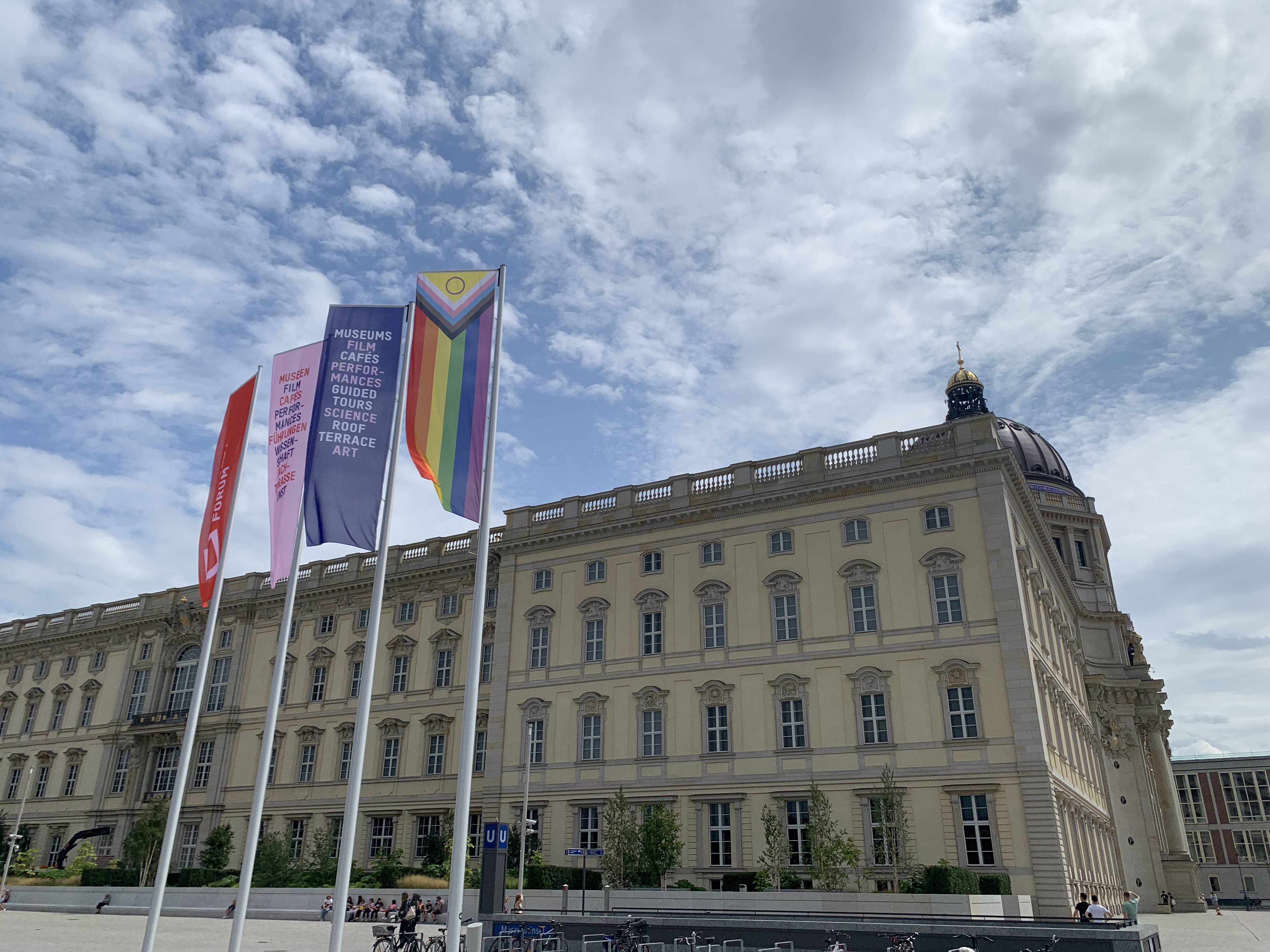
How does time work in a heritage context and what can a queering perspective contribute to challenging normative models of temporality?
This group unpacks approaches from the anthropology of art, time and kinship, queer studies and museum studies to understand and co-create queer (non-normative) relations around the collection of the Ethnological Museum Berlin. Our focus lies on time, seeking to offer speculative ways of narrating, making and thinking heritage past, present and futures differently. Looking to the future, engaging with museum objects may help to affirm new intersectional relations. Outside of the realm of representational politics, we will develop and hands-on apply a queer methodology. Through reading and discussing in the classroom alongside research at the museum, participants can develop their own projects for a joint presentation.
Participants on MA level (exceptions possible) from all disciplines are welcome!
Contact: isabel.bredenbroeker@hu-berlin.de
Context
Dr. Isabel Bredenbröker is a social and cultural anthropologist based at the Centre for Anthropological Research on Museums and Heritage (CARMAH) which is part of the Helmholtz Zentrum für Kulturtechnik at Humboldt Universität. Their expertise lies in theories of material culture, the anthropology of death and West Africa. They work with multimodal approaches, among them curatorial and collective formats, sound, and film.
The course is linked to Isabel’s current research project ‘Queering the museum? – An anthropological toolkit for intersectional relation-building in the arts’. For two years, as provided by the DFG Walter Benjamin program, this will be studied specifically in relation to ancestor-like objects in the Africa collection of the Berlin Ethnological Museum. The three major thematic fields are: anthropological theories of relation and kinship (particularly Alfred Gell’s Art Nexus model), queer theory and its potential for informing curatorial practice around ethnographic collections, as well as the anthropology of time in relation to the futures of ethnographic collections. Together with participants of the course, we will think through some of the project’s core ideas. Based on these readings, the course will offer a laboratory for research and experimentation in the museum, resulting in a publicly mediated format, such as a podcast or exhibition contributions.
- Course owner: Dr. Isabel Bredenbröker